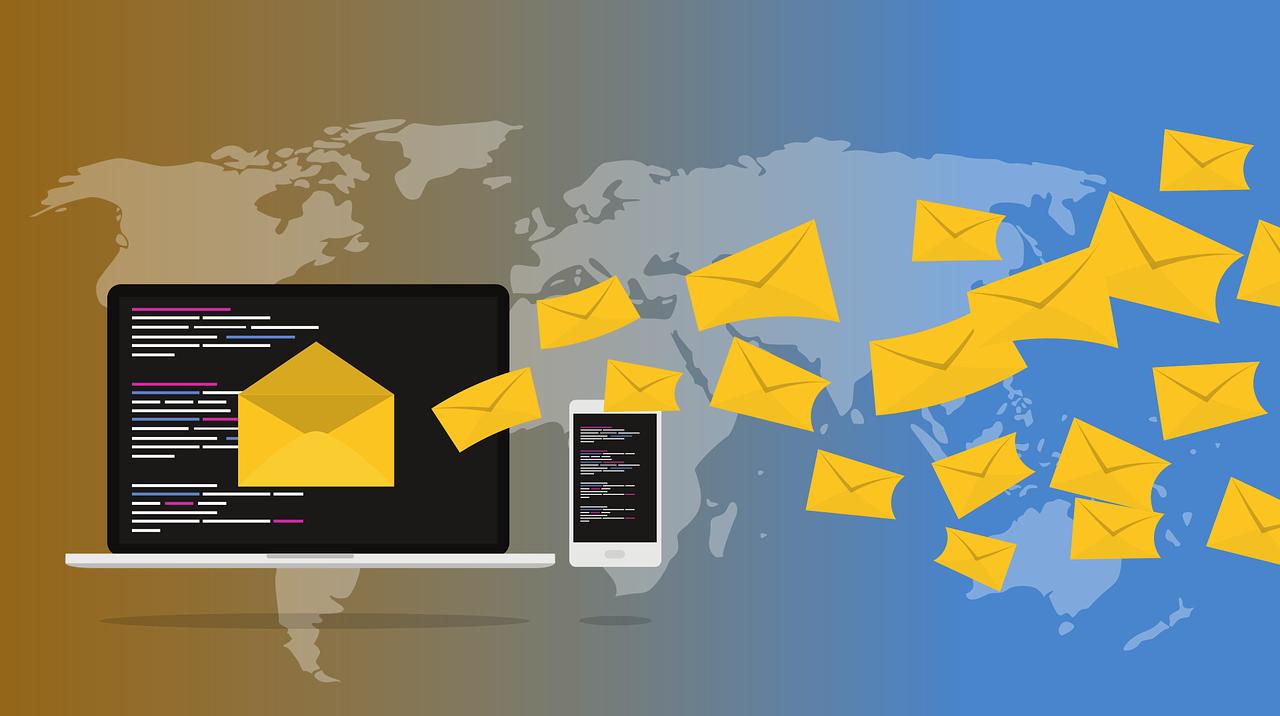Exploring the Role of AI in Driving Targeted Marketing

The evolution of marketing strategies has seen a seismic shift with the emergence of Artificial Intelligence (AI). This digital revolution, fueled by AI, manifests a dynamic transformation in how businesses approach their marketing strategies. As we venture deeper into this realm, we realize that the role of AI in targeted marketing has become crucial by enabling businesses to gather, analyze and apply data in an unprecedented way.
Such an understanding of the consumers, provided by AI, isn't just vast—it's accurate and actionable. In its most basic language, AI enables machines to simulate human intelligence processes such as learning, reasoning, and self-correction. More specifically, AI's ability to learn from data, known as machine learning, provides invaluable insights, preparing businesses for an optimized targeted marketing campaign.
However, the application of AI in marketing isn't just limited to data analysis. This technological marvel has the potential to streamline tedious processes, enabling companies to focus on result-oriented strategies rather than procedures. Whether it's predicting upcoming trends, customizing advertisements, or understanding consumer behavior, AI plays an instrumental role.
Looking ahead, this blog will delve further into the role of AI in various aspects of targeted marketing, ranging from CRM systems and A/B testing to personalized email content and social media marketing. Each section shedding light on how AI leverages data, enhancing marketing strategies, and irrefutably proving AI's critical role in the future of targeted marketing.
Understanding AI: An Overview
Artificial Intelligence's essence lies in its capacity to mimic the cognitive functions of the human mind - learning and problem-solving to name a few. Unlike traditional computing, where specific instructions are given for every task, AI is designed to learn and improvise by itself. It shouldn't be seen as an isolated, independent entity though. Much of AI's practicality comes to life through its subset technology - machine learning. Machine learning equips AI with the ability to analyze and interpret large volumes of data, learn from it, and make predictions or decisions without being explicitly programmed to carry out the task.
In order to grasp how profound of an impact AI has on the current marketing landscape, it's important to dive into its functionalities. AI's most prominent feature in marketing is its data analytical capabilities. It can quickly gather, analyze, and comprehend large sets of data more accurately and at higher speeds than humanly possible. It can then transform this data into meaningful patterns and insights, effectively identifying target consumers based on distinct consumption patterns, behavioral trends, past purchases, and other relevant behavioral data. AI's robust ability to scrutinize data not only optimizes targeted marketing but also molds the marketing strategies into personalized communication with the consumers. As an example, a company might use AI to analyze shopping behaviors of its customers. This analysis can then guide the company to generate personalized product recommendations, enhancing customer engagement, loyalty, and overall retail results.
Current State of Targeted Marketing

Traditional targeted marketing strategies have largely hinged on blanket approaches that, while effective to some extent, have rarely been personalized for individual consumers. Often, these strategies would involve a broad segmented approach that fosters limited two-way interaction. For example, businesses might use TV commercials or print ads, designed to appeal to the broad segment of their audience, but lacking personal relevance for customers. Because of this, marketers might miss out on tapping into a significant potential consumer base.
However, it's important to note the shortcomings associated with these conventional strategies. The lack of personalized content, for instance, can lead to inefficient resource allocation, as marketers might spend money advertising products and services to individuals who have no interest in their offerings. This highlights the need for precise targeting, which can help ensure that only the most interested customers are reached. Mauricio Aldana, a marketing expert, opined that "Traditional targeted marketing strategies lack the personalization needed to truly catch and hold the attention of today's customers who are used to tailor-made experiences."
Advancements in technology and data collection practices have started initiating changes in the targeted marketing landscape. Better access to customer data has enabled marketers to gain more in-depth insights into customer behavior but still lacks the sophistication required to predict the future buying behavior of individuals. As pointed out by Mike Kaput, Director at the Marketing Artificial Intelligence Institute, "The issue with current data-centric marketing is that, while we can analyze past trends, predicting future consumer behavior based on this data is still primarily a guessing game." These changes and identified gaps signal a tantalizing opportunity for the integration of AI in this field.
Role of AI in Enhancing Targeted Marketing
Artificial Intelligence (AI) enriches targeted marketing by leveraging its data analysis capabilities to understand and predict consumer behavior effectively. Marketing, a dynamic field, constantly seeks innovative approaches and AI aids this pursuit by diving deep into consumer data, segregating it into demographically relevant categories, facilitating targeted marketing in a precise manner.
One important aspect where AI excels is in its ability to anticipate market trends through data. By mapping buying habits, browsing history, and interaction patterns, AI can discern patterns unseen by conventional methods. The Costco wholesale chain saw a surge in sales after AI predicted a demand spike for certain products, exemplifying the accuracy and efficiency of AI-driven trend prediction.
AI further magnifies its role in targeted marketing by customizing ads based on consumers' preferences. Netflix's personalized recommendations reflect individual viewing patterns gathered by AI algorithms, creating a unique user experience that keeps viewers engaged and thereby improves Netflix's retention rate.
In addition to consumer behavior and ad personalization, AI reduces the noise in marketing by crafting precise messages for individual users. With AI algorithms in play, brands can deliver highly relevant content to their audiences, reducing content irrelevance and improving brand perception. A case in point is Spotify's "Discover Weekly" playlist, specifically tailored to listeners' likes and tastes, making each user's experience unique and personal.
Overall, AI's involvement in targeted marketing signifies an epoch-changing shift in how businesses approach their marketing strategy. Where traditional methods might miss, AI steps in, making predictability a reliable tool in marketing, thereby enhancing outreach, engagement, and ultimately, sales.
AI-Driven CRM Systems For better Customer Insight

Artificial intelligence, when fused with Customer Relationship Management (CRM) systems, takes the understanding of a customer base to a whole new level. It's no longer about static data and manual analysis; AI gives life to the information by sorting, analyzing, and presenting it in a way that reveals patterns, trends, and potentially profitable opportunities. For instance, software company Salesforce has adopted Einstein AI into their CRM to deliver predictive and prescriptive services, making it one of the pioneering companies to successfully implement an AI-integrated CRM.
Integration of AI in CRM systems provides invaluable insights that were previously inconceivable. These systems are now capable of processing massive amounts of data much quicker and accurately than humans ever could. They can decipher complex consumer algorithms, deducing preferences, buying patterns, and prominent trends. As a case in point, market leader Amazon uses AI to analyze millions of transactions daily, providing personalized recommendations that have helped them maintain a loyal customer base.
The potential of AI-CRM fusion goes beyond analyzing customer behavior. It can also help businesses predict future trends based on the collected data. This assists companies in designing their marketing initiatives for optimal effectiveness. eBay, for example, uses an AI-driven CRM system to predict market trends and adjust their marketing campaigns accordingly, fundamentally transforming their business model and customer approach.
In conclusion, AI-driven CRM systems offer enhanced customer insights, which can lead to more refined and highly-targeted marketing strategies. The goal is to deliver what the customer wants before they even know they want it. With real-world examples of companies like Salesforce, Amazon, and eBay reaping the benefits, it's clear that the fusion of AI and CRM is a gamechanger in the world of marketing.
AI in A/B Testing for Timely Marketing Decisions
Artificial intelligence, a technological marvel, has significantly transformed A/B testing by expediting the process and enabling more timely marketing decisions. A/B testing, traditionally a time-consuming task involving manual guesswork and sometimes improper targeting, has been made efficient and accurate through AI. As a result, companies can quickly and more accurately determine which of their marketing approaches resonates best with their targeted audience.
AI can analyze vast amounts of data, assessing countless variables, to provide swift, comprehensive, and precise results. For instance, Sentient Technologies, an AI enterprise, was able to conduct over 38000 tests in only one year, all thanks to its AI-driven platform 'Ascend'. The software's ability to analyze every potential combination of website versions underlines the preeminence of AI in A/B Testing. Time saved in evaluating marketing options can be crucial, enabling companies to react promptly to market trends and launch campaigns sooner, leading to improved ROI.
Moreover, AI elevates the efficacy of these decisions by ensuring that they are grounded in concrete data. Instead of relying solely on intuition, businesses can leverage AI’s predictive analytics to make informed marketing decisions. This transformation illustrates the commendable role AI plays in advancing A/B testing, reinforcing its vital role in boosting targeted marketing efforts.
The Impact of AI on Modern-day Email Marketing

Artificial intelligence is reshaping the landscape of traditional processes in many sectors, and email marketing is no exception. The potential of AI to analyze vast sets of user data is being utilized extensively to personalize email content. Personalization pulls from users' browsing behavior, past purchases, and other interactions to curate highly targeted messages. Companies like Amazon effectively use AI-powered email marketing by sending user-specific recommendations, enhancing their overall shopping experience and driving sales.
In addition, AI's ability to assess user engagement metrics, such as click-through rates, is proving to be a game changer. It not only identifies what content triggers a positive response from the recipient but also optimizes the email's delivery time to maximize its effect. Take, for example, Netflix's successful AI-driven email campaigns. The streaming service analyses viewer habits and show preferences to tailor content in their emails, offering viewers suggestions for their next binge-watch. By boosting engagement in this manner, AI is helping to transform email from a one-way communication channel to an interactive, customer-centric tool positioning email marketing as a more potent tool in the marketer's arsenal. Understanding and harnessing these methods can lead to innovative and improved ways to engage customers and drive business success.
The Future of AI in Targeted Marketing
As we contemplate the future, it's intriguing to speculate about the advancements we could witness in the realm of AI and targeted marketing. Moving forward, AI is poised to revolutionize the way we conduct marketing by refining predictions, delivering unrivaled personalization, and tackling persistent challenges. The potential benefits are immense, spanning from customized advertisements finely tuned to individual consumer behaviors and trends to accelerated marketing decisions backed by improved A/B testing. Challenges will undoubtedly surface as AI continues its push into the marketing landscape, requiring marketers to constantly adapt and learn. However, the anticipated benefits, such as exponentially amplified consumer engagement in mediums like email and social media marketing, are poised to significantly outweigh any adversity. The intersection of AI and marketing is a thrilling frontier full of potential to enhance targeted strategies in ways we are only beginning to envisage.
